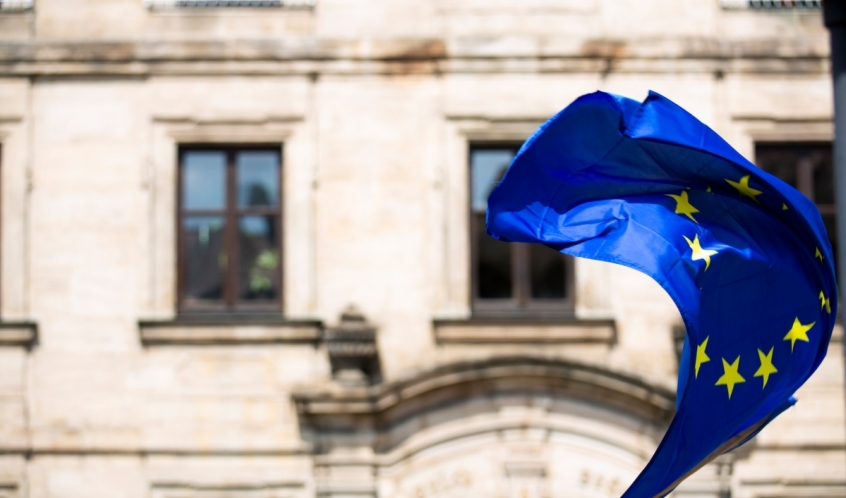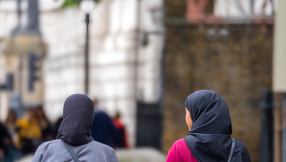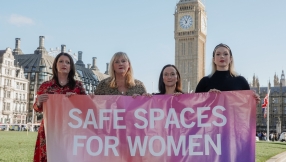
In an unprecedented move, over two dozen Church of England bishops have issued a joint letter urging the nation's leaders to be upfront about the potential cost of a no-deal Brexit.
The letter, signed by bishops from all corners of England, lists a number of concerns ranging from the tone of the political debate to the way in which the Irish backstop is being considered.
Warning against "political polarisation and language that appears to sanction hate crime", the bishops said it was "urgent" that the language of the debate be reframed "especially given the abuse and threats levelled at MPs doing their job".
They strongly criticised the "ease with which lies can be told and misrepresentation encouraged" in relation to Brexit and the "cavalier disregard" shown for Britain's democratic institutions as they said that leaders "must be honest about the costs of political choices, especially for those most vulnerable".
"The levels of fear, uncertainty and marginalisation in society, much of which lies behind the vote for Brexit, but will not be addressed by Brexit: poor people, EU citizens in the UK and UK citizens in Europe must be listened to and respected," they said.
Elsewhere, the bishops said that greater respect needed to be shown towards the question of the Irish border.
"The Irish border is not a mere political totem and peace in Ireland is not a ball to be kicked by the English: respect for the concerns on both sides of the border is essential," they said.
The publication of the open letter comes as the Archbishop of Canterbury, Justin Welby, weighs up an invitation to chair a new citizens' assembly on Brexit. He said he was open to accepting the role on the condition that the forum "should not be a Trojan horse intended to delay or prevent Brexit in any particular form".
Responding to this news, the bishops said: "The Archbishop of Canterbury has conditionally agreed to chair a Citizens Forum in Coventry and, without prejudice for any particular outcome, we support this move to have all voices in the current Brexit debate heard.
"However, we also have particular concerns about the potential cost of a No Deal Brexit to those least resilient to economic shocks."
They continued: "The Government believes that leaving the EU on 31 October is essential to restoring trust and confidence.
"It is unlikely, however, that leaving without an agreement, regardless of consequences, will lead to reconciliation or peace in a fractured country.
"'Getting Brexit done' will not happen on exit day, and we have to be transparent about the years of work ahead of us in bringing the country together for a better future. We also need to be frank about the potential costs.
"Our main social and political priority must be to leave well, paying particular attention to the impact of political decisions on those most vulnerable."
The letter can be read in full here:
The Archbishop of Canterbury has conditionally agreed to chair a Citizens Forum in Coventry and, without prejudice for any particular outcome, we support this move to have all voices in the current Brexit debate heard.
However, we also have particular concerns about the potential cost of a No Deal Brexit to those least resilient to economic shocks.
As bishops with pastoral responsibilities in communities across urban and rural England, we respond to the call by Jesus to tell the truth and defend the poor. We also recognise that our obligations go beyond England and impact on relations with the wider UK and our neighbours in the EU.
Exiting the EU without an agreement is likely to have a massive impact on all our people and the Government is rightly preparing for this outcome. The Government believes that leaving the EU on 31 October is essential to restoring trust and confidence. It is unlikely, however, that leaving without an agreement, regardless of consequences, will lead to reconciliation or peace in a fractured country. "Getting Brexit done" will not happen on exit day, and we have to be transparent about the years of work ahead of us in bringing the country together for a better future. We also need to be frank about the potential costs.
Our main social and political priority must be to leave well, paying particular attention to the impact of political decisions on those most vulnerable.
We hold different views about Brexit and how our country should proceed from here. However, although we agree that respecting a public vote is essential, democracy and committed debate do not end after the counting of votes. Our concern for the common good leads us to express concern about a number of matters. Our conviction is that good governance can only ever be based on the confidence of the governed, and that includes minorities whose voice is not as loud as others.
Seeing the evidence of division in every part of England, we are deeply concerned about:
- Political polarisation and language that appears to sanction hate crime: the reframing of the language of political discourse is urgent, especially given the abuse and threats levelled at MPs doing their job.
- The ease with which lies can be told and misrepresentation encouraged: leaders must be honest about the costs of political choices, especially for those most vulnerable.
- The levels of fear, uncertainty and marginalisation in society, much of which lies behind the vote for Brexit, but will not be addressed by Brexit: poor people, EU citizens in the UK and UK citizens in Europe must be listened to and respected.
- The Irish border is not a mere political totem and peace in Ireland is not a ball to be kicked by the English: respect for the concerns on both sides of the border is essential.
- The sovereignty of Parliament is not just an empty term, it is based on institutions to be honoured and respected: our democracy is endangered by cavalier disregard for these.
- Attention must be paid not only to the Union, but also to the meaning of Englishness.
Churches serve communities of every shape, size and complexion. We continue to serve, regardless of political persuasion. We invite politicians to pay attention with us to the concerns we register above and encourage a recovery of civil debate and reconciliation.
The Rt Revd Nick Baines, Bishop of Leeds
The Rt Revd Donald Allister, Bishop of Peterborough
The Rt Revd Robert Atwell, Bishop of Exeter
The Rt Revd Paul Bayes, Bishop of Liverpool
The Rt Revd Paul Butler, Bishop of Durham
The Rt Revd Christopher Chessun, Bishop of Southwark
The Rt Revd Dr Christopher Cocksworth, Bishop of Coventry
The Rt Revd Stephen Cottrell, Bishop of Chelmsford
The Rt Revd Tim Dakin, Bishop of Winchester
The Rt Revd Vivienne Faull, Bishop of Bristol
The Rt Revd Christopher Foster, Bishop of Portsmouth
The Rt Revd Richard Frith, Bishop of Hereford
The Rt Revd Christine Hardman, Bishop of Newcastle
The Rt Revd Nicholas Holtam, Bishop of Salisbury
The Rt Revd Dr John Inge, Bishop of Worcester
The Rt Revd Dr Michael Ipgrave, Bishop of Lichfield
The Rt Revd James Langstaff, Bishop of Rochester
The Rt Revd Philip Mounstephen, Bishop of Truro
The Rt Revd and Rt Hon Dame Sarah Mullally DBE, Bishop of London
The Rt Revd Dr Alan Gregory Clayton Smith, Bishop of St Albans
The Rt Revd Martyn Snow, Bishop of Leicester
The Rt Revd Graham Usher, Bishop of Norwich
The Rt Revd Dr David Walker, Bishop Of Manchester
The Rt Revd Andrew Watson, Bishop of Guildford
The Rt Revd Dr Pete Wilcox, Bishop of Sheffield













